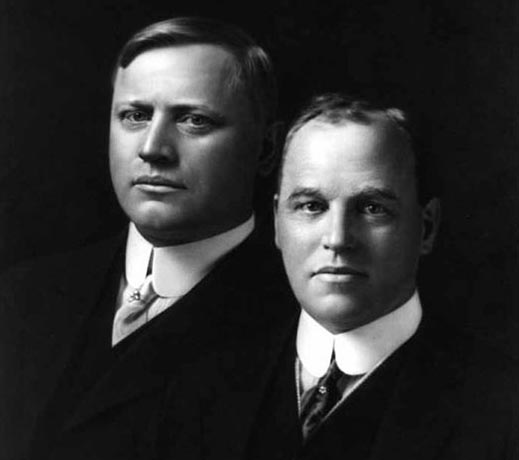
The Bolshevik Revolution is a root cause of income inequality in the United States. That seems too crazy to be true, but history is more connected than the stories they teach in school.
The story begins in 15 years before Lenin’s Russian Revolution, in 1902, when Henry Ford founded the Ford Motor Company. This was Ford’s third car company, the first two failed from a failure to ship a working car. To fix this, Ford’s investors insisted he hire the Dodge Brothers to build the Ford Cars, and Ford pre-paid Horace and John Dodge 5% each in equity in lieu of cash for the first production units.
The Ford Motor Company was an incredible success. They shipped and sold 2,000 cars in 1902, into a U.S. market that had only 2,000 cars. By 1915 they shipped and sold 500,000 cars, had perfected the assembly line to grow to that scale, and from the original $100,000 of investment, had distributed $55 million back to the shareholders. (more on the implications of those dividends in A hidden cause of Income Inequality)
The growth continued into 1916, with $60 million more in profits by the end of that year. The Dodge Brothers had started a competing company a few years earlier, and wanted their $6 million (10%) to help fund their company’s growth. Henry Ford wanted to skip the dividend, to re-invest the profits into the River Rouge Plant, what would be the world’s most vertically integrated manufacturing plant every built. After some heated letters, the Dodge brothers sued Ford, and the implications of that suit are seen every day 100 years later.
Like most civil cases, the courts took a while to decide the case. By October 1917, the Bolsheviks had created the Soviet Union, there were Socialist and Communist parties all across Europe, and small but growing political parties in the U.S. advocating for revolution.
In 1919, the Michigan Supreme Court issued a final verdict in the lawsuit, looking at the Bolsheviks specifically and Socialist movements in general in their choice of commentary on their decision, seeing that they had an opportunity to define the definition and purpose of American Capitalism. Their words are paraphrased and repeated by Nobel-laureate economists, taught in every business school, and heard every day in CNBC, in the Wall Street Journal.
A business corporation is organized and carried on primarily for the profit of the stockholders. The powers of the directors are to be employed for that end. The discretion of directors is to be exercised in the choice of means to attain that end, and does not extend to a change in the end itself, to the reduction of profits, or to the non-distribution of profits among stockholders in order to devote them to other purposes…
Better known simple as:
The purpose of business is to maximize shareholder value.
The Michigan Supreme Court could have said that the purpose of business is to please customers, with profits being an outcome of that process. They could have mentioned that businesses employ employees, who are needed to please those customers. They could have with Henry Ford, that businesses should pay their workers enough to be customers. But no, the only purpose mentioned by the Michigan Supreme Court is to make money for shareholders, a.k.a. capitalists, full stop.
With this paradigm set it place, in the last 100 years, it is the capitalists who have most benefited from the incredible growth of business.
The vast majority of profits from the electrification of America, the global telephone network, the railroads, the automobile industry, airplanes, rockets, weapons, and the internet have flowed into the founders of those companies and to the investors who provided the investment capital.
A far smaller percentage passed through the paychecks of employees, creating a middle class, but 100 years later, nearly all of that wealth landed in the hands of just 10% of the population, leaving 90% of the population wondering why their standard of living has stopped improving, and leaving 50% of the population with nothing to show for all the work they and their forebears put into building the modern world.
This is not the first time in history this pattern has emerged, and each time before the era ended with revolution at best, or cultural collapse at worst. I hold out hope that there is a systemic solution to avoid those fates in the 21st Century.














